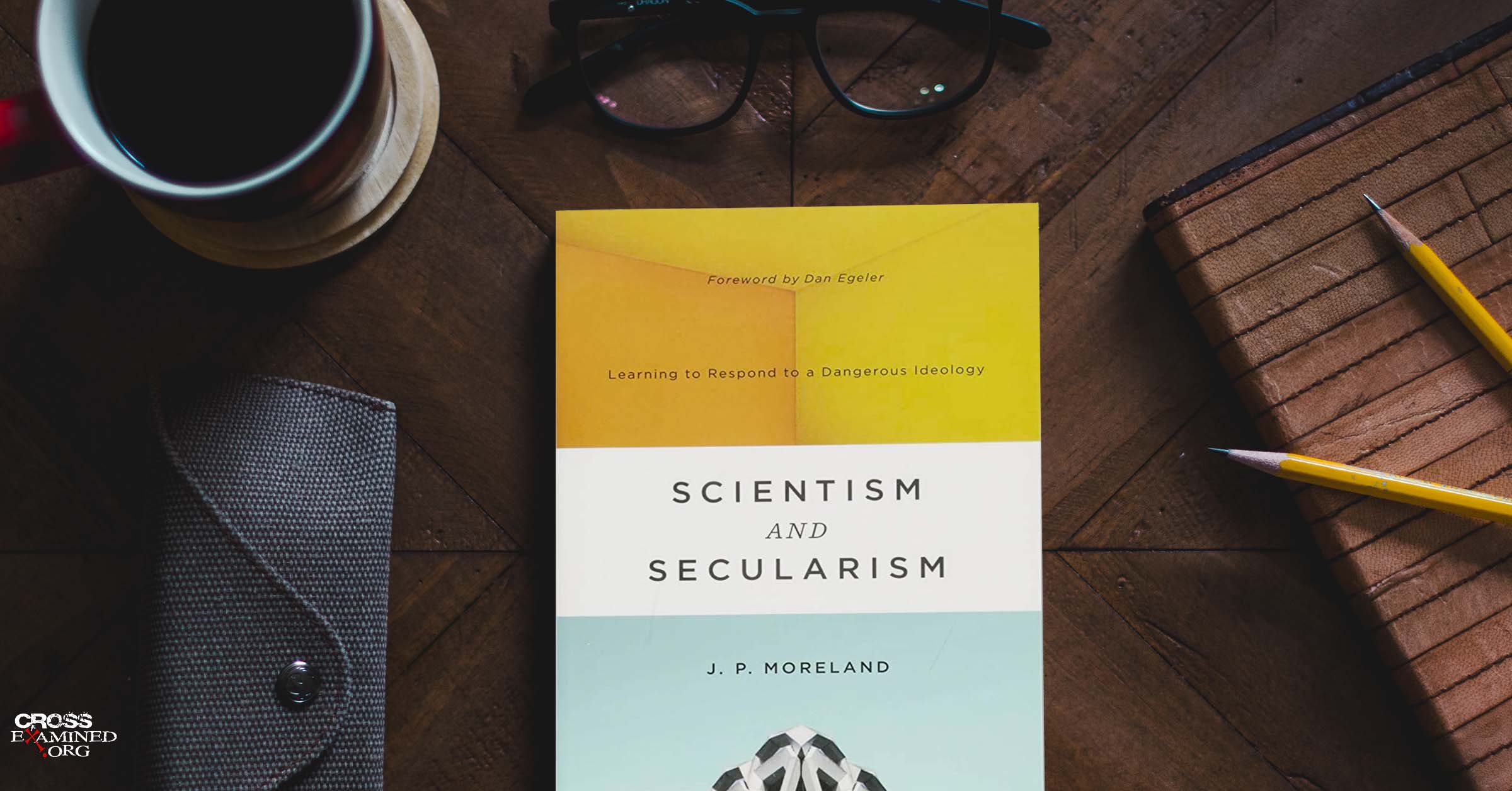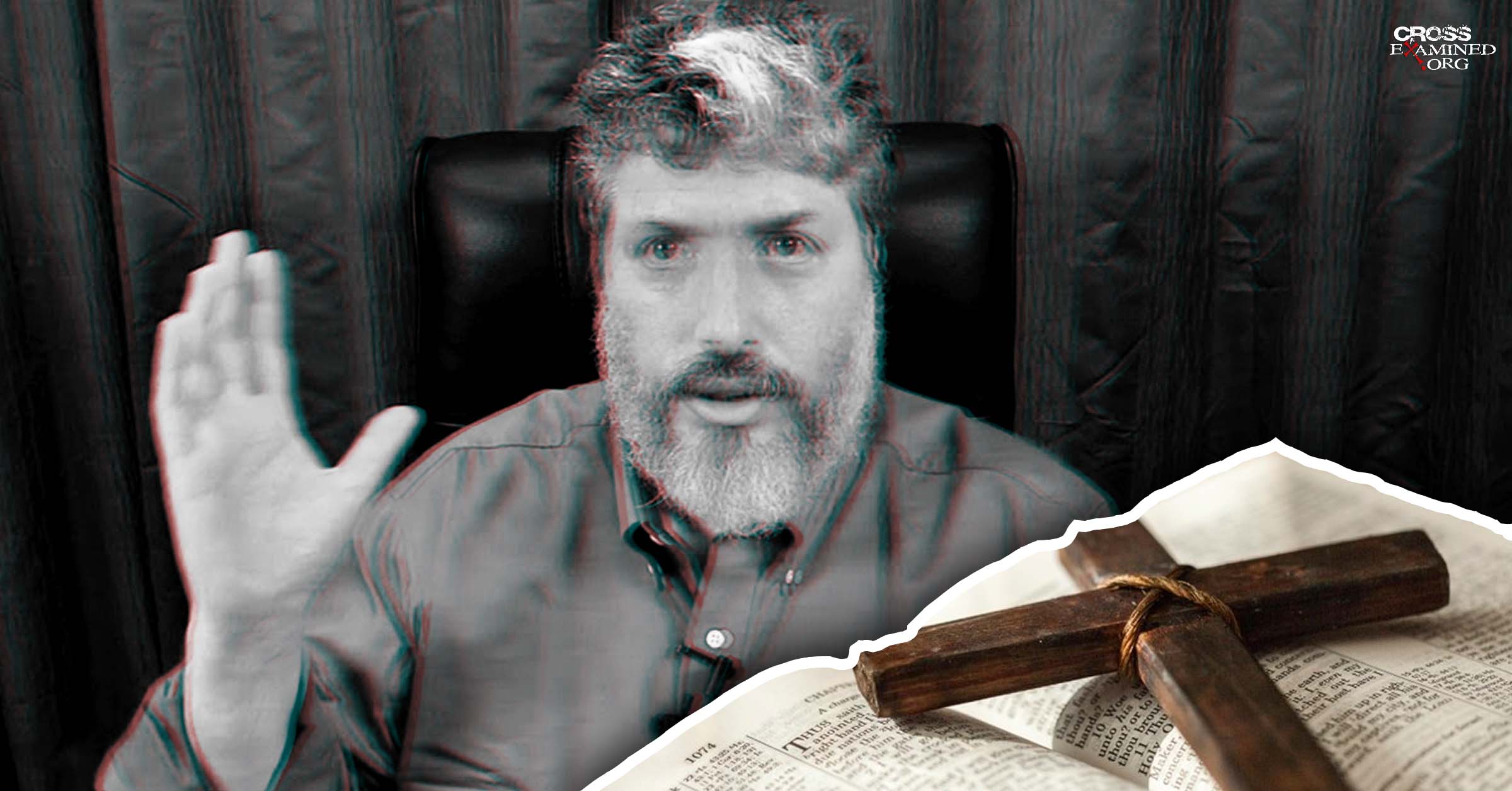All scientific research, discussion, and education is affected by a series of underlying beliefs that include what one grants as sources of knowledge. It is quite common in today’s culture for people to accept “scientism,” which limits sources of knowledge entirely to the sciences to the exclusion of any other claimed knowledge source or places all other sources of knowledge under the authority of the sciences.
Both of these philosophies stifle scientific discovery, places knowledge of anything outside of the natural realm beyond reach and erects seemingly impenetrable barriers in discussions about ultimate reality (including morality, beauty, and theology). This has serious implications in the sciences, education, politics, and basic everyday life. In his book “Scientism and Secularism: Learning to Respond to a Dangerous Ideology” Christian philosopher J.P. Moreland aims to demonstrate the dangers of scientism, how it is (unwittingly?) accepted and exercised in culture even by Christians, and provide an alternative philosophy of knowledge that will avoid the dangers, expand humanity’s knowledge of reality in general, and move forward Christians’ internal discussions of theology and the world and give them another tool in their evangelical toolbelts as they provide “…reasons for the hope that [they] have…” (1 Peter 3:15). In this review, I’ll provide some of the key points, several important quotes, and my recommendations.
Key Points:
- Strong scientism is the idea that the sciences are the only legitimate sources of knowledge about reality. Other sources of knowledge are not even entertained.
- Weak scientism “allows” for other sources of knowledge but holds that science is the ultimate arbiter of truth. Thus it has forced all other knowledge disciplines to reinterpret their findings according to the science of the day. Ultimately it is strong scientism by a “less-threatening” name.
- Because there is no other (ultimate) source of knowledge outside the sciences, there is no moral knowledge, historical knowledge, philosophical knowledge, or theological knowledge. This has resulted in the relativism we see in the university and culture today.
- Numerous examples of non-scientifically verifiable claims and knowledge do exist.
- In fact, the very claim of scientism is one such example, making scientism a self-refuting claim. Thus it is necessarily false and is actually an enemy of science (and knowledge) in the long run.
- Science judges philosophy, and philosophy judges science. Depending on which claim must be established before the other can be judged.
- Proper order placement of knowledge disciplines has effects on claims about the beginning of the universe, origin of life, existence of mental states, and the existence of objective morality and beauty among many others.
- Scientism has stunted the debates surrounding theistic evolution and intelligent design by precluding non-scientific knowledge disciplines from the debates.
- There are at least five different models for how science and theology can move forward together in their discovery of what is real and true.
Some Important Quotes:
“In order for science and certain other intellectual disciplines to be possible, we humans must be able to use our reason to go beyond our sense, reach into the world’s deep structure, and grasp, formulate, and verify the theories we form about that deep structure.”
“To the extent that scientism is embraced in our culture, our moral and spiritual claims will be ‘de-cognitivized.’ In other words, our deepest beliefs about life, knowledge, history, and reality will seem to be utterly implausible–not just untrue, but unworthy of rational consideration.”
“These days, if an accepted scientific claim comes into conflict with an accepted nonscientific claim from another discipline (such as theology), which claim must be set aside? In our culture, the scientific claim always wins. Why? Simply because it is scientific. Scientism seems so obvious and pervasive to people that it can be stated without any need to defend it. Appealing to science to back one’s claim is a conversation stopper that settles the issue.”
“The first problem with weak (and strong) scientism is that it diminishes the intellectual authority of other important fields, especially biblical studies and theology.”
“Advocates of weak scientism are confused about the relative cognitive strength of an assumption and a claim that is based on that assumption. Weak scientism believes that a claim based on an assumption has greater warrant than the strength of the assumption itself. In reality, though, the claim is only as good as the assumption upon which it rests. And because the assumptions are not scientific assumptions, but rather philosophical assumptions, philosophy has a kind of primacy over science. Therefore, weak scientism’s claim that science always take precedence over other disciplines is false.”
“…a culture, which has a set of background assumptions–or, a plausibility structure–sets a framework for what people think, which affects how that they are willing to listen, evaluate, feel, and behave. The framework shapes what people consider plausible or implausible.”
“Often, in order to get people to hear the gospel, we have to address solely a person’s private, felt needs and promise that Jesus will change their lives and help them. There’s nothing wrong with this as long as it is rooted in the deeper claim that Christianity is true, is based on solid evidence, and can be known to be true. But scientism has forced the church to offer the gospel simply because it works rather than because it is true and can be known to be such.”
“Classically, freedom meant the power to do what one ought to do…Contemporary freedom has come to be understood as the right to do whatever one wants to do…By undermining moral knowledge, scientism has provided the context for the contemporary view of freedom and, consequently, it has led to moral chaos.”
“It is not enough just to know Scripture; as Christians, we must also understand the systems of thought, practice, and value in our culture that are worldly, and be able to make this clear to fellow Christians and explain how to refute those ungodly systems using both biblical and nonbiblical evidence (cf. 2 Cor. 10:3-5).”
“Christians must be taught not only what they believe but why they ought to believe it. This will especially involves exposing and undermining scientism, and dealing with issues relating to science and the Bible.”
“The very concept of ‘faith’ has been redefined and has now replaced reason. Today, faith is choosing to believe something in the absence of evidence or reasons for the choice. Faith used to mean a confidence or trust based on what one knows. Given the current definition, ubiquitous throughout the church, we Christians have unintentionally played right into the hands of advocates of scientism. By thinking of faith in this way, we are tacitly implying that we believe in the tenets of Christianity without any evidence or reasons at all.”
Recommendations
- The first recommendation I will give is for any Christian involved in scientific research, education, and/or discussions(whether it is internal with other Christians or external in apologetic and evangelistic efforts). Moreland shows not only how we may be allowing some version of scientism to limit our own knowledge, but he also shows how we can identify that it may be limiting others and ways in which we may be able to make others aware so they overcome that foundational barrier and be able to move conversations (and discovery) forward.
- My second recommendation is for Christians involved in discussions of morality and politics. Scientism has been a primary driving force for the moral relativism, thus the reliance in politics on who has the most power. As you learn more about scientism and how it came to be the dominant philosophy in culture, you will see how to address moral and political issues at a more foundational and wider reaching level.
- My third recommendation is for a more focused audience of my first: those who are involved (either in research, education, or discussion) of origins from a Christian perspective. I often hear Christians claim that we cannot allow our philosophy or theology to interfere with our science. Unfortunately, that is a direct application of weak scientism that needs to be removed from our thinking. This book help you understand how even weak scientism fails and should be abandoned in our discussions of origins.
- Finally, a general recommendation for all Christians. As we proclaim (and often defend) the truth of the Resurrection of Jesus Christ, scientism (even the weak version) can get in the way of people accepting this historical fact- no matter the strength of the case for the resurrection of Jesus as the best possible explanation, a philosophy of scientism will preclude the person from accepting even the possibility of a supernatural miracle. It is important that we understand where these people are coming from and how to show the inadequacies of such a philosophy.
Recommended resources related to the topic:
Is Morality Absolute or Relative? by Dr. Frank Turek DVD, Mp3 and Mp4
Counter Culture Christian: Is the Bible True? by Frank Turek (Mp3), (Mp4), and (DVD)
____________________________________________________________________________________________________________________________________________________
Luke Nix holds a bachelor’s degree in Computer Science and works as a Desktop Support Manager for a local precious metal exchange company in Oklahoma.
Original Blog Source: https://bit.ly/3xTWJZu










